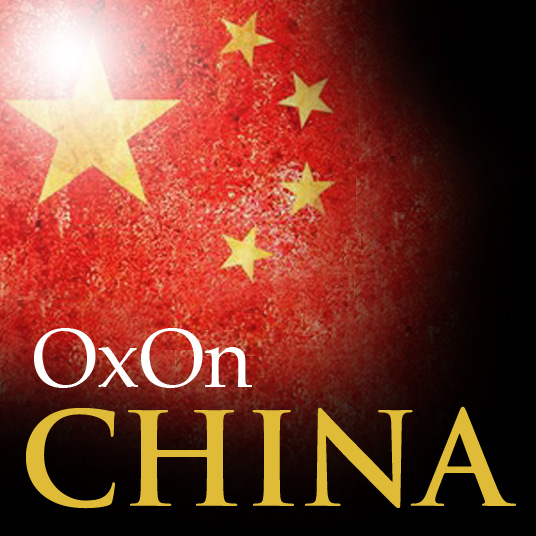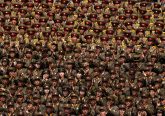Following North Korea’s third nuclear weapons test in February this year, much attention has been paid to debates within China over its troublesome neighbour, with some suggesting severing ties to the North altogether. Do these discussions reflect a fundamental shift underway in China’s North Korea policy? Not necessarily.
Above all, there is no indication that China’s core preference – stability over de-nuclearisation – has changed under the new President, Xi Jinping. It is notable that unlike Hu Jintao, Xi has quickly consolidated his power base and demonstrated resolve on the North Korean nuclear crisis, stating to a South Korean special envoy earlier this year on 23rd January that China ‘could not tolerate North Korea possessing nuclear weapons’. Then, at the Boao Forum in April, Xi went further, stating in indirect reference to North Korea that ‘no one should be allowed to throw a region and even the whole world into chaos for selfish gains’. However, Xi is also aware that China-North Korean relations are at a low-point, limiting Beijing’s options. There is frustration on both sides: from China that North Korea has refused its economic advice, and from North Korea that it depends far too much on Chinese trade and aid. China has also become alarmed by recent North Korean actions, such as the detaining of Chinese fishermen in the Yellow Sea, or the decision to pull out, at the last minute, of a major contract with a Chinese mining company. Does this low-point in relations suggest China might be willing to engage in tougher action towards North Korea? Not really. The bottom line is that even if China has decreasing influence over North Korea, why would they unnecessarily make an enemy of Pyongyang? From Beijing’s perspective, there is a bigger issue at stake: the United States. While the United States has recently sought to entice China into action, it makes little sense for the Chinese to burn a strategic bridge in a region where the United States is clearly re-positioning itself.
What then of the debate? Shortly before and after North Korea’s third test, Chinese newspapers like Huanqiu Shibao and its English version, the Global Times, led the way in discussions of China’s North Korea policy. Chinese experts also appeared in western publications, with Deng Yuwen calling for China to ‘abandon North Korea’ in the Financial Times and Fudan University Professor Shen Dingli arguing in Foreign Policy that China should ‘cut its losses’. However, these discussions need to be placed into context. First, they are not new. Debate on this issue has been simmering since the late 2000s, gaining particular momentum following the death of Kim Jong Il in 2011. Moreover, academics like Zhu Feng of Beijing University have long declared China’s North Korea policy a failure. Second, often overlooked is the diversity of views in the debate. Those arguing for drastic change tend to make the headlines, but there are many, including many in the military, that promote a traditional line, voicing concerns over US encirclement and the importance of the North as a buffer zone to US forces in South Korea. Third, the publicity afforded to the most recent debate could be viewed as part of a wider effort by the Chinese to indirectly warn North Korea and demonstrate to the outside world, especially the US, that China is open to a more public discussion of policy.
Even if the debate does not reflect real change, limited action is expected on the economic front. In a recent move, the Bank of China has frozen accounts belonging to the Foreign Trade Bank, North Korea’s main foreign exchange bank. China has also stepped up checks on shipments to and from North Korea. These checks are important because of reports that Chinese cities, notably Dalian, have been used to channel illegal exports to North Korea. In addition, shortly after the third test, China supported UNSCR 2094, which makes it harder for the Kim regime to transfer cash and prohibits the sale of luxury items. But China’s record on sanctions is sketchy. This is partly because China dislikes sanctions as a non-proliferation tool. China is also concerned that heavy-handed economic action would be counterproductive. Certainly, with bilateral trade totalling almost 6 billion US dollars last year, China is aware that it can inflict massive economic damage upon its neighbour. But here’s the rub: China possesses an economic ‘hammer’ rather than a ‘lever’. It thus needs to be applied delicately otherwise it will hurt the North Korean population and destabilise the regime, an outcome not desired by Beijing.
To complicate matters, in the past, China has acted when security concerns were extremely high and the opportunity for gains were clear. None of these conditions are in play today. True, the security implications of a nuclear armed North Korea provide a rationale for US military involvement in the region, in particular missile defence, which runs counter to China’s interests. But none of these concerns are new. There is also little to be gained in terms of image: the Six Party Talks simply no longer cut it for China. Once offering benefits in terms of regional and international image, the Six Party Talks have become a disappointment, perhaps even an embarrassment for the Chinese.
The lack of incentives, together with strategic considerations of the United States in the region and perceived negative consequences of tough economic action all serve to constrain China today. This is where the internal debates come in. Heightening the public profile of internal debates offers a short-term Band-Aid solution for China: deflecting some of the pressure from the United States and, at the same time, chastising North Korea. So don’t be fooled by the headlines just yet: the debate has become more public, but fundamental change in China’s North Korea policy remains to be seen.








No Comment